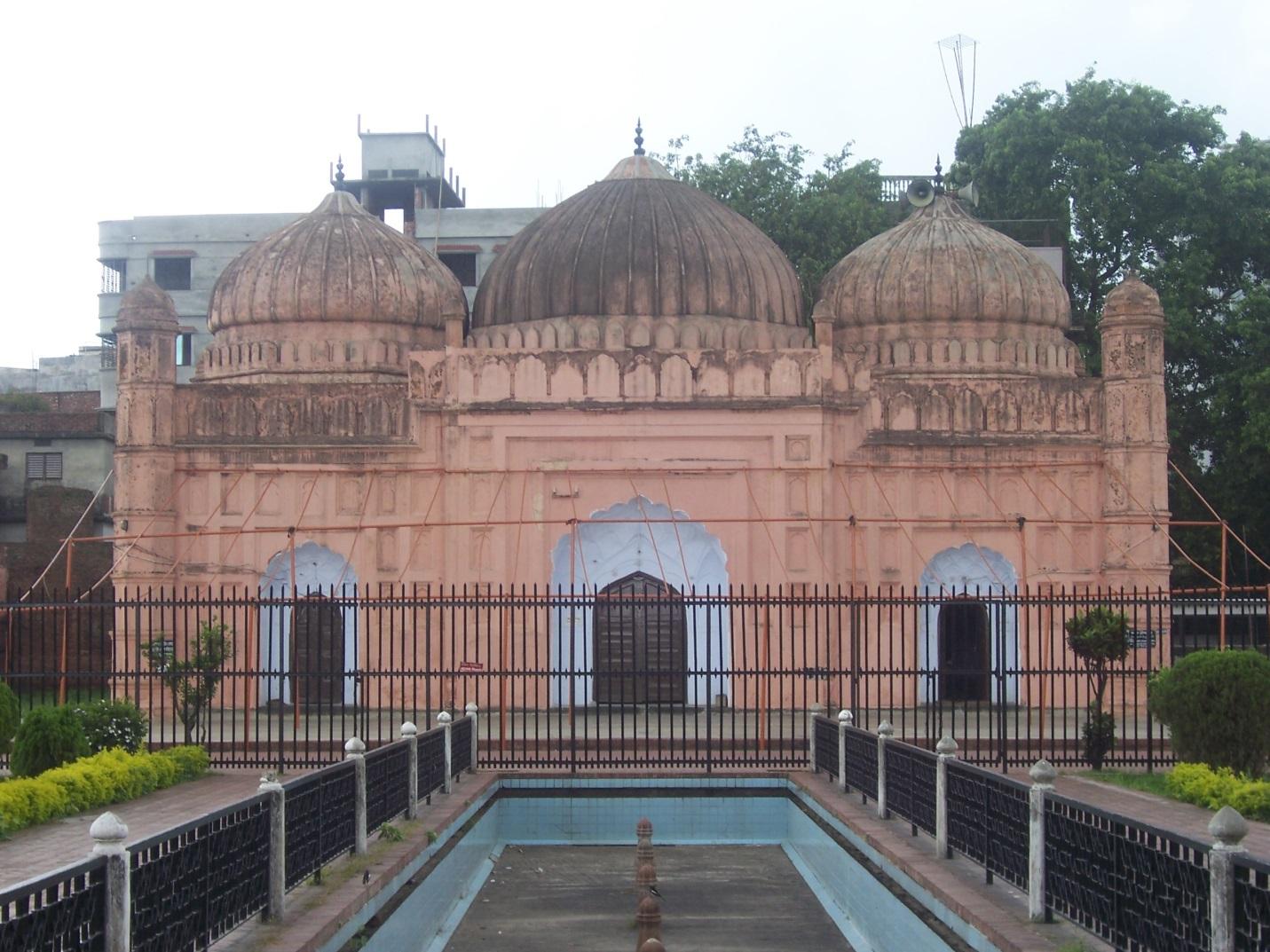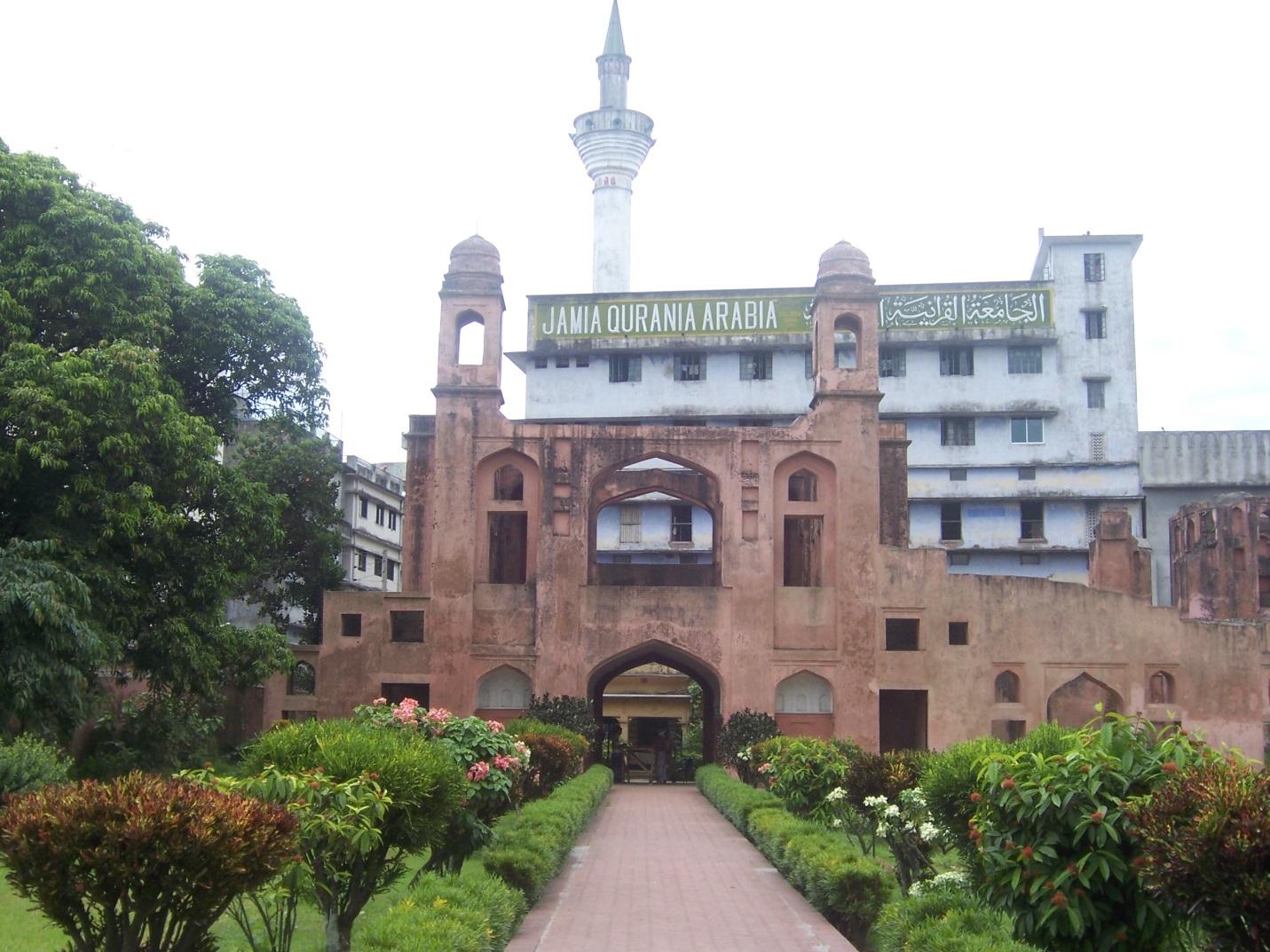In the heart of the bustling city of Dhaka, Bangladesh lies the mausoleum of Bibi Pari (“Lady Fairy”), the daughter of Shaista Khan, once the Vice-Royalty of Mughal Dhaka. The incomplete building complex named “Lalbagh Fort” consists of the tomb to Bibi Pari, a mosque, a Diwan and Hammam, as well as several supporting structures. Its original constructor, the Mughal Muhammad Azam may not have realized in 1678 when construction first began what an important social role this complex of buildings would play in the lives of the present-day inhabitants of Dhaka. The fort stretches across 18 acres and serves as both a park and a historical site managed by the Department of Archaeology.
We visited the rose-colored buildings on a sultry July day and witnessed friends gathering to talk and couples on romantic mid-day excursions. Some couples gathered near the tomb of Bibi Pari, the most impressive structure on the premises. A dominant (false) octagonal dome stands atop a central room which serves as a nice compliment for the mausoleum’s eight surrounding rooms. According to the didactics on site, Bibi Pari died on the grounds in 1684. She now rests in the central room.
Joining us, the only tourists, were also schoolchildren on lunch break. As we walked toward the fort’s retaining walls two schoolgirls shyly followed us at a distance. The young girls – about 12 or 13 in age – then stopped our Bangladeshi host to ask if they may practice their English and speak with us. The short exchange of pleasantries and questions like “What is your name?” and “How many brothers do you have?” left us with a dear impression of Bangladeshi youth. These young girls were friendly, welcoming, and jumped at the chance to practice their studies.
In our home I have a print of the Lalbagh Fort and each time I look at it I remember the young girls and their warmth. I wonder how students around the world would benefit if they spent their lunch breaks at 17th century Mughal building complexes, inspired by the architecture and practicing their studies. I am not sure what kind of woman Bibi Pari or “Lady Fairy” was. I like to think that a part of her bestows gentle knowledge on the young schoolgirls who frequent her tomb and welcome visitors.
We walk by and live in architecture every day and rarely stop to wonder at our built environment. Rosina Eileen Khan is a Classicist, Fulbright recipient, and historical architecture enthusiast. She seeks to help readers appreciate the architecture which hosts so many of our memories. She lives in Indianapolis, Indiana (USA) and throughout her travels stops to marvel at the architecture around her. Rosina Eileen Khan can be reached at rosinakhan@icloud.com.



